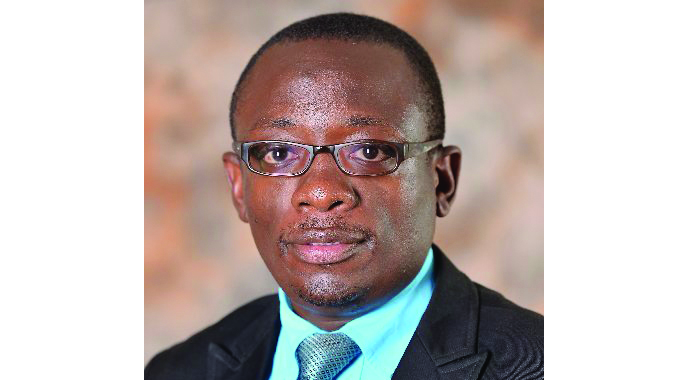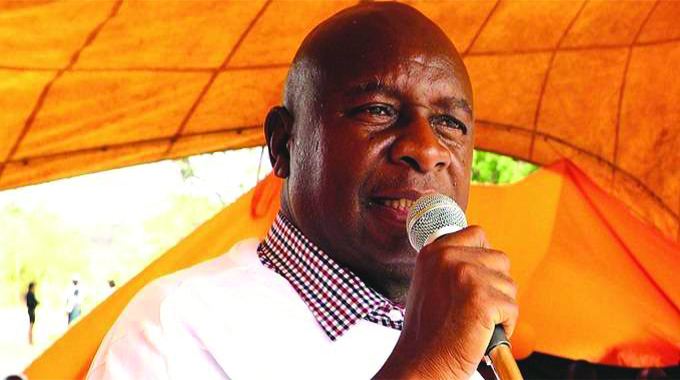
The Sunday News

Simba Jemwa, Sunday News Correspondent
THE Tshelanyemba community in Maphisa is at loggerheads with the Salvation Army Church, which claims ownership of Tshelanyemba High School while the School Development Committee (SDC) insists the institution belongs to the community.
The two parties are now fighting for the ownership of the school in court.
The Director of Communications and Advocacy in the Ministry of Primary and Secondary Education Mr Taungana Ndoro said his ministry would await the outcome of the pending court cases.
“The matter has been taken before the courts, so let’s let the law take its course,” Mr Ndoro told Sunday News.

Mr Taungana Ndoro
It is said the problems at the school have been affecting proper running of the institution.
The problems started after the SDC lodged a High Court application against the Salvation Army Church who had approached the Magistrates Court in Kezi seeking to stop the construction of a girl’s dormitory which is a project that the SDC is working on together with the local community.
The Salvation Army Church sought the interdict as the Responsible Authority of the school, but this is now being questioned by the community that is now seeking to wrest control from the Church. Reportedly, the Church’s reason for stopping the construction of the dormitory was that it was unlawful and it was being constructed where the church wanted to build a hall for worship.

Salvation Army Church
On the other hand, the SDC and the community have been planning on building the dormitory to provide accommodation for girls who travel long distances to and from school
According to sources close to the issue, the site for the project had been approved by the Ministry of Primary and Secondary Education while the plan had been approved by the Ministry of Local Government and Public Works, the Ministry of Health and Child Care and Matobo Rural District Council.
In October last year, the Primary and Secondary Education Deputy Minister Edgar Moyo launched a fundraising initiative for the construction of the girls’ dormitory which was to accommodate 60 pupils when complete.
“The problem between the community and the church started when the church failed to build a boarding secondary school in 1981 after Government had requested missions to build secondary boarding schools while communities were to build day schools which were called upper tops,” said one source.
“When the church failed to build a boarding secondary school, the community took up the Government offer and looked for land outside the premises of the church in a community area and built a day secondary school with Government assisting the community through a building aid grant,” the source continued.

Primary and Secondary Education deputy Minister Edgar Moyo
“The community employed community builders whom they paid from the building fund and collections from parents and members of the community. The community then invited the church to be the Responsible Authority of the school because the law required that schools be under a Responsible Authority,” another source revealed.
“The church was chosen because it is an international organisation and the community hoped that the church would mobilise resources using its international links to build a fully-fledged boarding secondary school and also assist the school in other areas of development. This did not happen. Funds that were destined to the school channelled through the church including school fees which the church collected were never accounted for. This resulted in the community withholding the fees and opening a bank account where the fees were banked which happened in 1991.
“This led to a very bitter fight between the church and the community, but the community refused to have the church in control of the school fees. It was at this time that the community wanted to change the Responsible Authority of the school but this did not happen. However, the relations between the church and the community remained strained,” the source added.
Relations reportedly worsened in 2016 when the students who were staying in the school including those who were staying in teachers’ cottages were removed from the school by the church officials who brought in the police.
Most of these students were girls who were about to write their Ordinary and Advanced level examinations.
This act angered the community and a meeting was called to chat the way forward. The church officials reportedly walked out of that meeting, worsening the situation.
The community’s position was that the church had no right to chase the students out of school accommodation because it had failed to build accommodation for the students.
Officials from the Ministry of Primary and Secondary Education reportedly met with representatives from the church and the school administration as well as its the SDC in Harare in 2017 and came up with a roadmap to normalise the relations between the church and the community. This meeting also resolved that appropriate boarding facilities were to be constructed at the school as a matter of urgency.
In 2018 a stakeholders meeting was held where a decision was taken to move the school from the church to Matobo Rural District Council and another meeting was held in 2019 to change the Responsible Authority of the school from the church to Matobo Rural District council.
Traditional leaders met under the leadership of Headman Sigangatsha on May 11 this year and on May 18 on the issue of the relationship between the church and the community. On May 18, the church attended the meeting where it was told to leave the school.

The sources also claimed that all buildings that stand today at Tshelanyemba High School were constructed through the efforts of parents, the community, well-wishers and the Government which provided the building grant while there was no contribution from the church.
Matobo Rural District Council played a very key role in the establishment of the school and also contributed cement and tractors to assist the community in carrying quarry, river sand, pit sand and other locally available materials. The area’s Councilor Samuel Sigwaza Maphosa who was the chairman of the council education committee worked closely with John Sisana Toloki Nare.
Parties involved said they will only comment on the matter after the finalisation of the court case.



